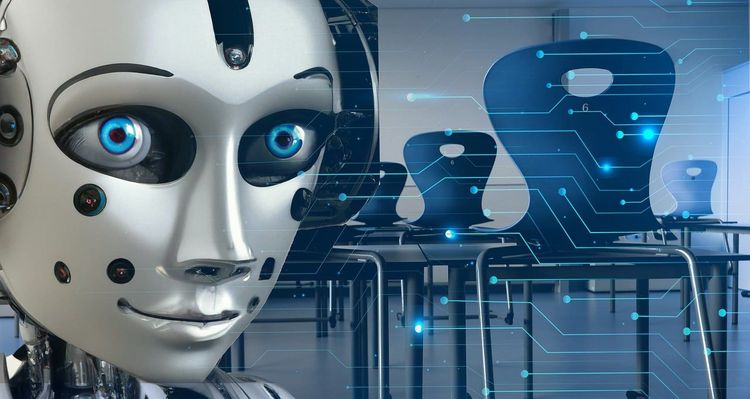Anthropic CEO Dario Amodei is eager to clarify that he isn't an AI "doomer." This sentiment is reflected in his substantial ~15,000-word essay published on his blog last Friday. I attempted to verify this with Anthropic's Claude chatbot, but unfortunately, the length of the post exceeded the chatbot's free plan limits.
In his essay, Amodei envisions a future where all AI-related risks have been addressed, ushering in unprecedented prosperity, social advancement, and abundance. While he emphasizes the importance of recognizing AI's pitfalls—taking a veiled jab at companies that overhype their technology—some may feel the essay tilts too far towards an overly optimistic, techno-utopian perspective, making claims that lack solid evidence.
Amodei predicts that "powerful AI" will be a reality by 2026. This refers to AI systems that surpass the intellect of Nobel Prize winners in areas like biology and engineering, capable of solving unsolved mathematical problems and crafting exceptional literature. He asserts that such AI will control any imaginable software or hardware, including industrial machines, effectively outperforming humans in many today's jobs.
"This AI can execute remote operations, engage in online transactions, interact with humans, manage experiments, and produce multimedia content," Amodei writes. "Though it lacks a physical form, residing only on a computer screen, it will manipulate existing tools, robots, or lab equipment remotely. In theory, it could also design robots for its own use."
Securing this future, however, requires significant advancements. Current AI lacks true reasoning abilities, relying instead on patterns in its training data. Moreover, even assuming the industry achieves human-like cognition, does the robotics sector possess the capacity to enable future AI systems to conduct lab experiments and create their own tools? Today's robots exhibit significant limitations, suggesting that this scenario is far from guaranteed.
Yet Amodei remains optimistic—exceedingly so. He believes that within the next 7 to 12 years, AI could help eradicate most infectious diseases, cure various forms of cancer, eliminate genetic disorders, and prevent the onset of Alzheimer's. In the next 5 to 10 years, he envisions AI-developed treatments for PTSD, depression, schizophrenia, and addiction, alongside genetically screening embryos to prevent these issues. He suggests that future medications could enhance cognitive function and emotional well-being, contributing to an improved daily experience.
Should his predictions come to fruition, Amodei anticipates a dramatic increase in human lifespan, potentially reaching 150 years. “My primary assertion is that AI-driven advancements in biology and medicine will compress decades of progress into just a few years,” he explains, referring to this phenomenon as the "compressed 21st century."
While these claims are ambitious, they may seem far-fetched given that AI has yet to revolutionize medicine meaningfully—or may take a considerable time to do so. Even if AI reduces the costs of drug development, failures can still occur later in the process, just as with human-designed drugs. It's essential to recognize the current biases and implementation difficulties faced by AI in healthcare. Suggesting these issues will be resolved within the next decade appears overly optimistic.
But Amodei doesn't stop at healthcare solutions. He asserts that AI could eliminate world hunger, combat climate change effectively, and boost economies in developing nations; he even claims AI could elevate sub-Saharan Africa's GDP to match China's in just 5 to 10 years.
Such sweeping assertions may resonate with proponents of the "Singularity" movement, which advocates for similar transformative outcomes. To his credit, Amodei acknowledges that achieving these goals will require substantial global collaboration in health, philanthropy, and political advocacy—an outcome he believes would be in the economic interest of nations worldwide.
However, this would necessitate a significant shift in collective human behavior, as history shows that people often prioritize short-term benefits over long-term goals. Examples like deforestation illustrate this tendency. Additionally, many workers who label datasets for AI training earn far below minimum wage while their employers profit immensely.
Amodei briefly addresses the potential risks AI poses to civil society, suggesting that a coalition of democracies should safeguard AI supply chains and restrict its use by adversaries with harmful intentions. He contends that AI, when wielded responsibly, could help challenge oppressive governments and diminish bias in the legal system, even though AI has historically compounded biases in this area.
“A mature and effective implementation of AI could genuinely reduce bias and promote fairness,” Amodei states.
Yet, if AI takes over numerous jobs and performs them more efficiently, what will happen to the human workforce? Amodei concedes this is a valid concern, indicating society will need to engage in discussions about restructuring the economy. However, he refrains from providing concrete solutions.
“People seek a sense of achievement and competition, and in a post-AI world, it will still be possible to take on challenging tasks with complex strategies, akin to current endeavors in research, performing arts, or entrepreneurship,” he argues. “The reality that (a) AI could theoretically excel at these tasks and (b) that they may not hold economic value in a future economy doesn’t concern me greatly.”
In concluding, Amodei suggests that AI merely accelerates technological progress and that humanity naturally gravitates towards "rule of law, democracy, and Enlightenment principles." However, he overlooks the numerous costs associated with AI. The technology's environmental impact is substantial, and it's fostering inequality. Economists like Joseph Stiglitz have warned that labor disruptions caused by AI could further concentrate wealth among corporations, leaving workers increasingly powerless.
This point appears particularly relevant for Anthropic, which is valued at around $40 billion. The beneficiaries of its AI technologies are predominantly corporations focused on maximizing shareholder returns, rather than advancing humanity.
Moreover, one might question the timing of Amodei's essay, especially as Anthropic is reportedly seeking substantial venture capital. OpenAI CEO Sam Altman released a similar techno-optimistic manifesto just before closing a $6.5 billion funding round. Coincidence, perhaps?
Regardless, Amodei is not a philanthropist; like any CEO, he is marketing a product—his vision that this product will “save the world.” Those who challenge this notion, he suggests, may risk being left behind.







